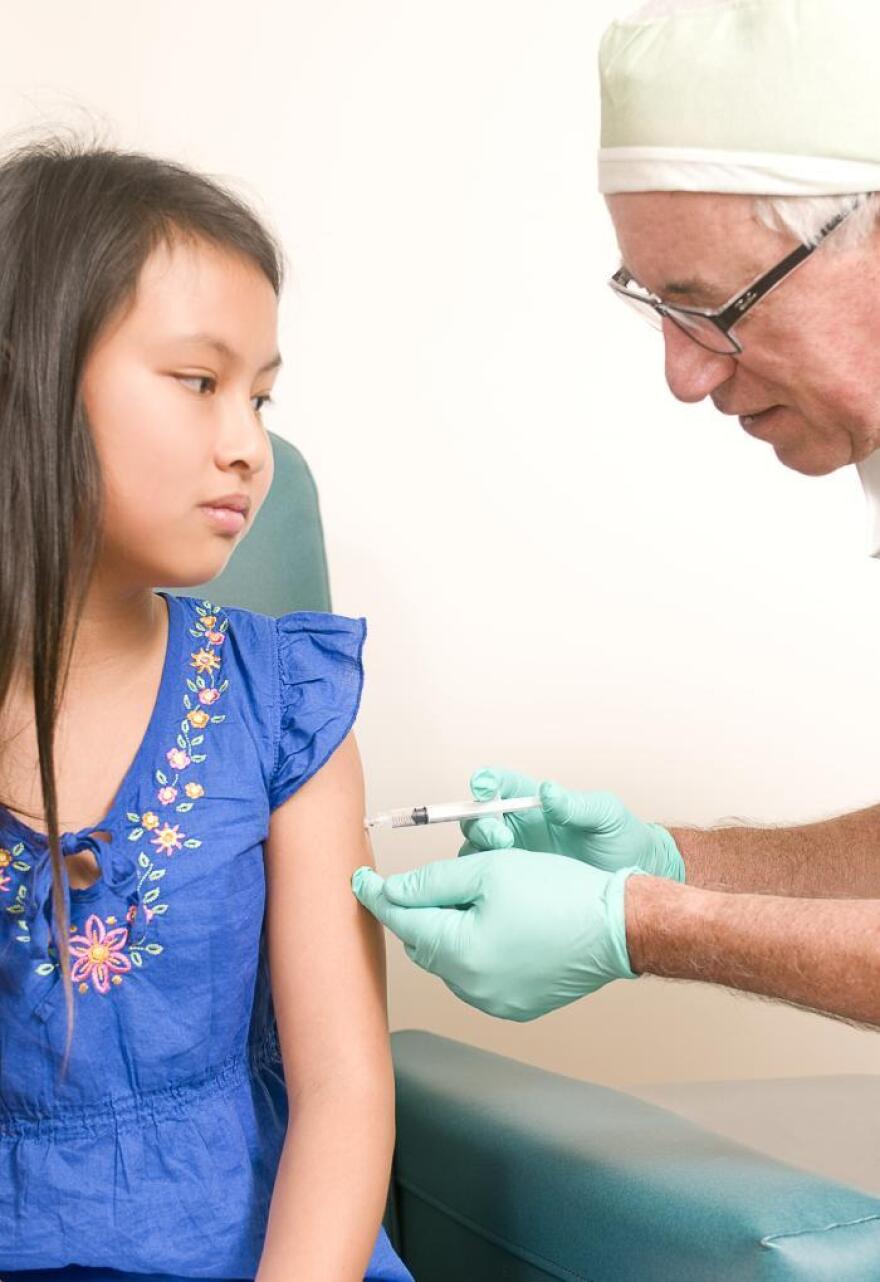The percentage of unvaccinated students in Arizona has been rising the last several years. This year, 6 percent of parents declined to give their kids at least one required vaccine. Now the Arizona Department of Health Services warns 9 counties in the state don’t have the immunization levels to protect against measles outbreaks, which are happening in other parts of the country. KNAU’s Melissa Sevigny spoke with Jessica Rigler, assistant director of public health.
Jessica, what is your level of concern for Arizona right now?
From a public health perspective the decreases in immunization rates across our state are incredibly concerning. We are seeing more and more children in Arizona at risk for dangerous vaccine-preventable diseases.
Are there particular places in the state that are more concerning, that you’re watching closer than others?
We definitely keep an eye on some of our northern areas of the state, just because they are certainly good areas for tourism, you think about places like the Grand Canyon where get a lot of international travelers visiting, and we also know vaccine levels are a little bit lower in that area, too.
If you’re somebody who has been vaccinated for measles as a child, is there anything you need to be worried about now?
The measles vaccine is pretty effective at protecting people against the measles, so if you have been vaccinated with both doses, it’s unlikely you would become ill when exposed to measles. However, there are many people in our population that aren’t able to be vaccinated, not due to personal choice, but due to other reasons, for instance, they might be too young or they might have a medical condition that compromises them. It’s those individuals that we’re incredibly worried about, because there’s not much they can do to protect themselves from these dangerous diseases.
So for people are not vaccinated, specifically for parents who are choosing not to vaccinate their children, what would you like them to know about this situation?
For anyone who is unsure about whether or not they should vaccinate their child, I would strongly encourage them to have a conversation with their health care provider. I’m a parent, I want to make sure my child is healthy and that she’s safe. Parents often have questions about the care they’re giving for their children. A health care provider is a good person to address those questions.
One interesting thing I noticed about the data on the Department of Health website is that parents tend to pick and choose which vaccinations they want their kids to have. I’m just curious, do you know why that is and if there are particular immunizations that cause more concern?
That’s a great point. Some students are exempted from just one vaccine, some from are exempted from all vaccines, and it depends if you look across the board—specifically with the Kindergarten population, you’ll see more students are vaccinated against chickenpox than they are against other diseases like measles or whooping cough. I’m not sure why parents make decision to vaccinate their children with some vaccines and not with others. However, if you think about chickenpox, that’s a disease more recently in our memories. Many parents had chickenpox as a child and remember the agony of all those itchy rashes, and might have more an incentive to vaccinate their kids against that disease, compared to something like measles that they’ve never seen before and don’t know anyone who’s had it.
If there is a measles outbreak in Arizona, what happens next?
We did recently have a case in Pima County of measles, and even one case in Arizona we take very seriously. What we do there is look to identify anywhere that someone infected with measles had gone during their infectious period…. In the instance where someone exposed a school, we also will work with local public health to identify any children in that school who are unvaccinated, so we can keep them home and out of school for the incubation period for disease, and to watch them to make sure they receive the care they need and to make sure the disease doesn’t spread any farther.
Jessica Rigler, thank you for speaking with me today.
Thank you.








